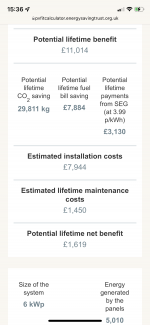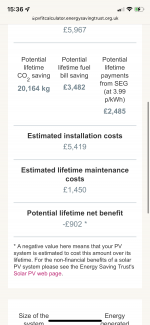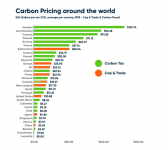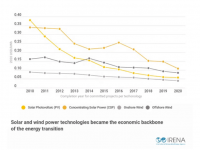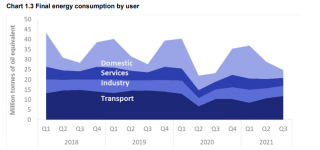First of all the current government could have had ten years of investment in tidal and solar and have not done it. It was in just about everyone else’s manifesto. We are great at green energy manufacture in this country and it would have been a total win win for jobs. What a missed opportunity by these clowns.
Secondly, if you can afford it now is a good time to get solar installed if you have a south-ish facing house. Energy prices are up hugely already and will apparently go up another 50 percent in the summer, then another 25 percent in the autumn. FFS!
Solar now costs about a quarter of what it did fifteen years ago to install and the tech is now better. My annual gas and electric bill will cost me more at the end of this year then what it will cost to install a 12 panel system. I will struggle to pay for it, but it looks like it would pay for itself in a couple of years the way we are going. Just seems common sense. Putin won’t be getting any money off me.
Secondly, if you can afford it now is a good time to get solar installed if you have a south-ish facing house. Energy prices are up hugely already and will apparently go up another 50 percent in the summer, then another 25 percent in the autumn. FFS!
Solar now costs about a quarter of what it did fifteen years ago to install and the tech is now better. My annual gas and electric bill will cost me more at the end of this year then what it will cost to install a 12 panel system. I will struggle to pay for it, but it looks like it would pay for itself in a couple of years the way we are going. Just seems common sense. Putin won’t be getting any money off me.

